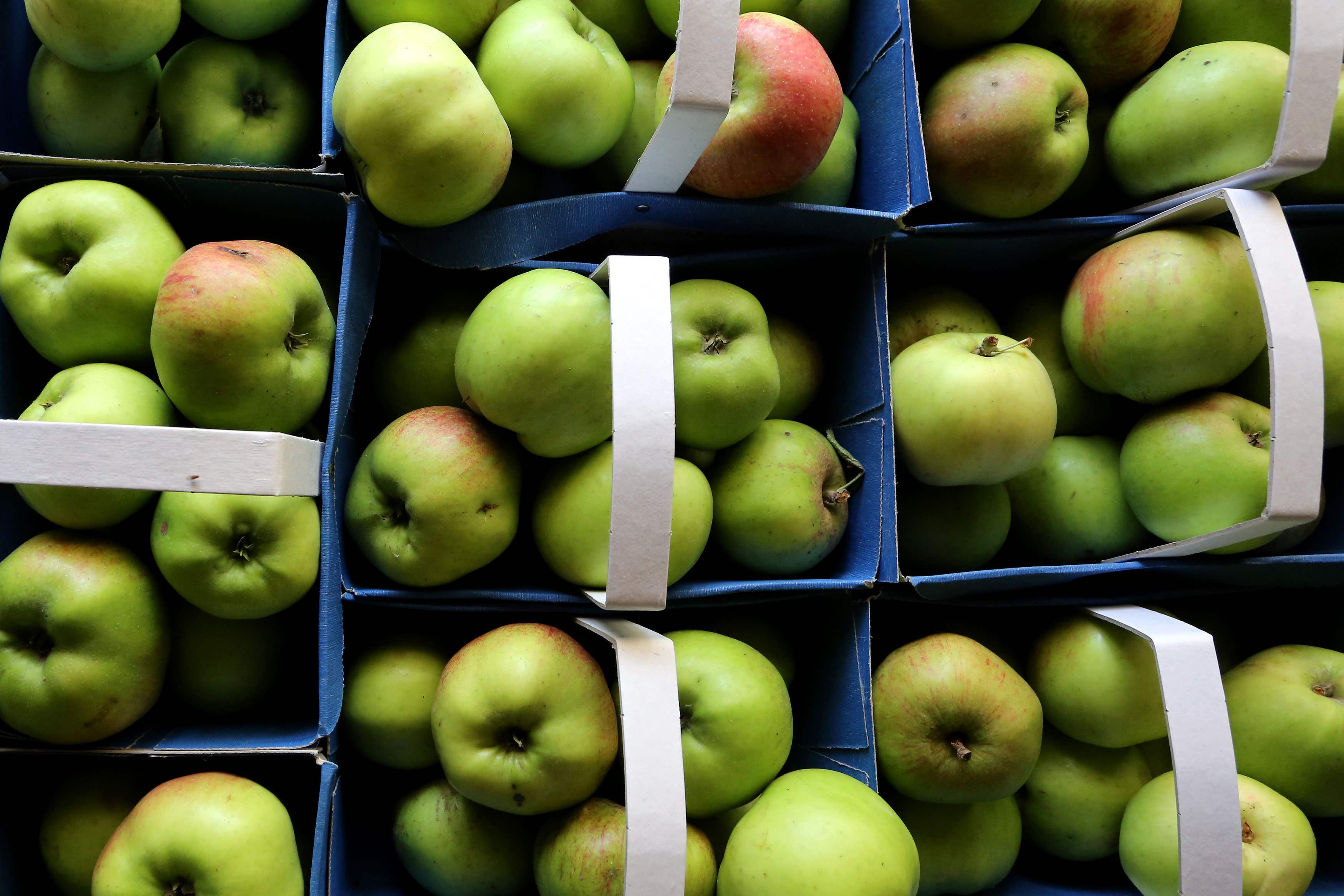New method of squeezing apple juice could boost its health benefits – study
The new technique boosted polyphenol content by four times as much as regular apple juice, researchers said.

Your support helps us to tell the story
From reproductive rights to climate change to Big Tech, The Independent is on the ground when the story is developing. Whether it's investigating the financials of Elon Musk's pro-Trump PAC or producing our latest documentary, 'The A Word', which shines a light on the American women fighting for reproductive rights, we know how important it is to parse out the facts from the messaging.
At such a critical moment in US history, we need reporters on the ground. Your donation allows us to keep sending journalists to speak to both sides of the story.
The Independent is trusted by Americans across the entire political spectrum. And unlike many other quality news outlets, we choose not to lock Americans out of our reporting and analysis with paywalls. We believe quality journalism should be available to everyone, paid for by those who can afford it.
Your support makes all the difference.Scientists have discovered a new method of squeezing apple juice which may help to boost its health benefits.
The study found that this new method boosted polyphenol content by four times as much as regular apple juice.
Polyphenols are natural plant compounds found in fruit, red wine, and cocoa which are antioxidants, and are thought to have a range of health benefits for the heart and brain, and may protect against disease.
We hope that the new juicing method will be used more widely in the future to help people get more of these beneficial natural compounds
Researchers say they can maximise these compounds in the juice by using a new method called a spiral filter press, which actively takes out oxygen by vacuum-driven pressing.
Oxygen is excluded from all other processing steps, therefore reducing nutrient deterioration, according to the experts.
Past research has suggested that one group of polyphenols, called flavan-3-ols, may help improve blood pressure, cholesterol concentrations, and blood sugar.
Co-researcher on the study, Stefan Dussling, said: “Nutrient losses are commonly due to the presence of oxygen which quickly degrades some of the nutrients in apple juice like flavan-3-ols or vitamin C.
“This would happen when we juice apples at home or buy a ready-made product.
“We hope that the new juicing method will be used more widely in the future to help people get more of these beneficial natural compounds simply by drinking one glass of juice.”
Perhaps this juice may be more flavanol-rich than other juices, but we would still recommend that people get their fruit and the associated nutrients from the whole form of fruit as best possible
Dr Ana Rodriguez-Mateos, a Reader in Nutritional Sciences at King’s College London, who was not involved in the study, said: “I think the research is well conducted and very relevant.
“Finding a method that can retain more flavan-3-ols and vitamin C in apple juice during industrial processing is of great value, so people will have the choice to consume a healthier juice than the ones that are commercially available.”
She warns that apple juice is high in sugar, but that the “normal apple juice processing has the same amount of sugar and less phytochemicals, so if someone were to consume apple juice anyway, it would be best to get the phytochemical-rich juice than the normal one”.
The NHS recommends that someone’s combined total of drinks from fruit juice, vegetable juice and smoothies should not be more than 150ml a day – the equivalent of a small glass.
Dr Aisling Daly, lecturer in nutrition at Oxford Brookes University, said: “The method proposed may be more beneficial than other methods for apple juice production, to retain a greater amount of flavanols in the juice.
“However, it is important to note that we don’t consume nutrients in isolation, and the entire food matrix is important.
“Perhaps this juice may be more flavanol-rich than other juices, but we would still recommend that people get their fruit and the associated nutrients from the whole form of fruit as best possible.”
The study is published in the Food Research International journal.